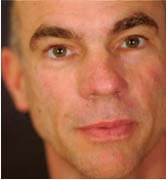 |
||||||||||||||||
|
|
||||||||||||||||
“I expect of them what I expect of myself: openness to experience, the willingness to honor their own and other people’s boundaries, curiosity, and a sense of humor.” |
360 Magazine Interview
Questions from Jean-Pierre at Dialogai, a gay men’s community center in Jean-Pierre: What can people expect from your two-day workshop in Jamie: This workshop is a time to give attention to the sensations and impulses of your body, and to relax into feeling yourself. How does your body want to move, to breathe, to make contact in ways that are pleasurable, nurturing, and stimulating? And once you are in this lively state of body perception, how is it to make contact and share movement and stillness with other gay men? What happens to anxiety, judgments, and distance? These questions are points of departure in our work together. Jean-Pierre: Do you also expect something from the people who will be part of it? Jamie: I expect of them what I expect of myself: openness to experience, the willingness to honor their own and other people’s boundaries, curiosity, and a sense of humor. Jean-Pierre: Would you define yourself as a teacher, a therapist or…? Jamie: These terms are difficult, as they mean different things in different cultures. I think of myself as a blend of teacher and therapist, or what I would call a “process-oriented educator”. To be process-oriented is to improvise with the structure and content of the seminars as they are happening. I follow the spirit of the room, and the responses of the participants, to create a new experience in the present moment. It really is a dialogue, and a journey of personal discovery and insight, just like any good therapy session. But I am not doing psychotherapy. I am not involving participants in explorations about their past, nor am I trying to provoke emotional breakthroughs. My role is to simply give people new experiences of themselves by guiding them into places of discovery through a curriculum of the body. The five languages of body intelligence – breath, vocalization, movement, contact and stillness – are the objective resources I teach in my seminars. In this respect, I am primarily an educator. Jean-Pierre: What's the difference of aims between Somatic Expression and yoga? Jamie: Yoga is a traditional system for transmitting specific movement and meaning. Somatic Expression is a system for exploring movement expression and individual meaning. Both approaches, for example, give attention to the articulation of the spine (flexion, extension and rotation), and use breath support and sound vibration practices. What I have found is the emphasis in many styles of Yoga on the specific form can keep people locked up in their inhibitions around movement and vocal expression. And if there is little freedom or spontaneity in our expression, we are limited in what we can experience. Yoga, as I have experienced it, does not teach people to improvise. This is curious, as there is a tradition of improvisation in Indian and Middle Eastern music. My personal belief is the body, due to the rules of religion and culture, has been kept under control way too much. As a result, my aim is to give people tools and resources to free up their creativity in movement and expression so they can discover more of who they are, and not what other people or belief systems tell them they should be. In fact, one of the oldest spiritual and philosophical teachings is: “Know Thyself”. So, we get to know ourselves through the medium of our own body awareness and expression without needing to conform to someone else’s definition of how we should move. Jean-Pierre: Where does Somatic Expression have its source: Psychoanalysis, Gestalt, Buddhism or any other dogma? Jamie: Its source is the philosophy of The conditions of our world today are radically different than they were 100 years ago, due to the Internet, pharmaceuticals, environmental changes: the list is endless. The human body/mind, and the social context it lives in, is dramatically different in the industrialized world now as well. As much as I respect ancient traditions and wisdom, my feeling is to innovate and adapt old forms to address our contemporary selves. Even the fact that I am offering a seminar for gay men; that in itself is a social innovation that was unheard of 100 years ago! As gay men, we are examining new ways to be in relationship with one another, in a community we are still in the process of defining. I would say we are also simultaneously re-defining what the “body” is. In the somatics field, we are pioneering a new paradigm: being with ourselves as awake, responsive, and expressive bodies. And that, just like being openly gay people, is a culturally subversive act of resistance and change.
|

Jamie McHugh. |
||||||||||||||
| © Copyright Jamie McHugh. All rights reserved. About Jamie | What Is Somatic Expression? | Courses | Calendar | Somatic Expression Articles | Somatic Expression Links | Products | Contact Jamie McHugh | Home |
||||||||||||||||